Kanae is a hospital-based spiritual care practitioner
What made you pursue a career in spiritual care?
I think it goes back to when I was a child. My father had a stroke when I was two and died when I was seven. I didn’t know at the time how his death affected me because nobody told me what death meant. But I think I carried a part of that with me.
Throughout my life I had many jobs. I was the manager of a retail store; I used to work as a production assistant of a television show; I had my own business; I was a business consultant doing project management…. They were good jobs but nothing felt meaningful.
I had a friend who had a brain tumour. I spent time with him and his wife for the last six weeks of his life. His brain tumour affected him in a way similar to how my dad’s stroke had affected my dad. Being with my friend allowed me to heal something within. I realized then that being with people at the end of their life, the ability to connect and talk with them at that point, was very meaningful for me.
As a spiritual care practitioner, I work with people when they are most vulnerable. Sometimes it is to help them grieve the losses in their life, which could be their health, their functionality, or their sense of identity. Other times I work with them to see what they hope for or how they cope.
I saw a man today who had a stroke. He was really upset and feeling very overwhelmed with all of the tests, but wasn’t able to articulate what it was. I said, “I am OK not to talk, but would it be OK if I sat with you?” He answered, “Yes.” So I just breathed with him. He closed his eyes and said, “Thank you for being here with me.” Sometimes it is just about receiving people where they are.
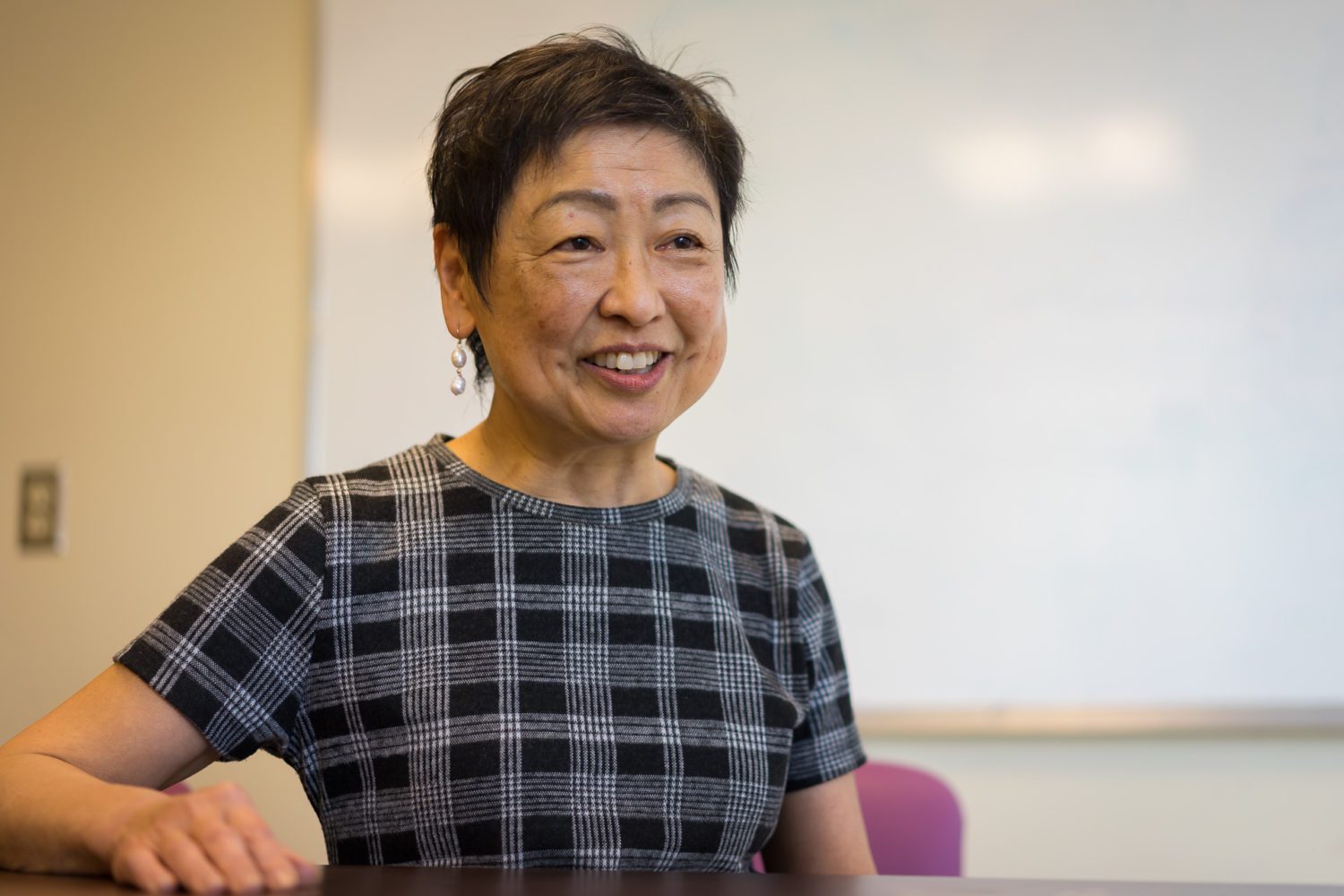
We do rituals that help people honour different passages, milestones and legacies in their lives. I was once called to see the family of a 20-year-old woman who was being taken into surgery. She was very sick and we didn’t know if she was going to make it. They were Roman Catholic and wanted the sacrament of the sick for her. So I asked if the priest could go into the operating room. The surgeon said, “Scrub him up and bring him in!” Everybody was willing to do whatever they could. She had the sacrament of the sick in the operating room and it was so meaningful to the family. And that’s what I think it’s all about. How can I be with people during the hardest times and make it just a little more meaningful for them?
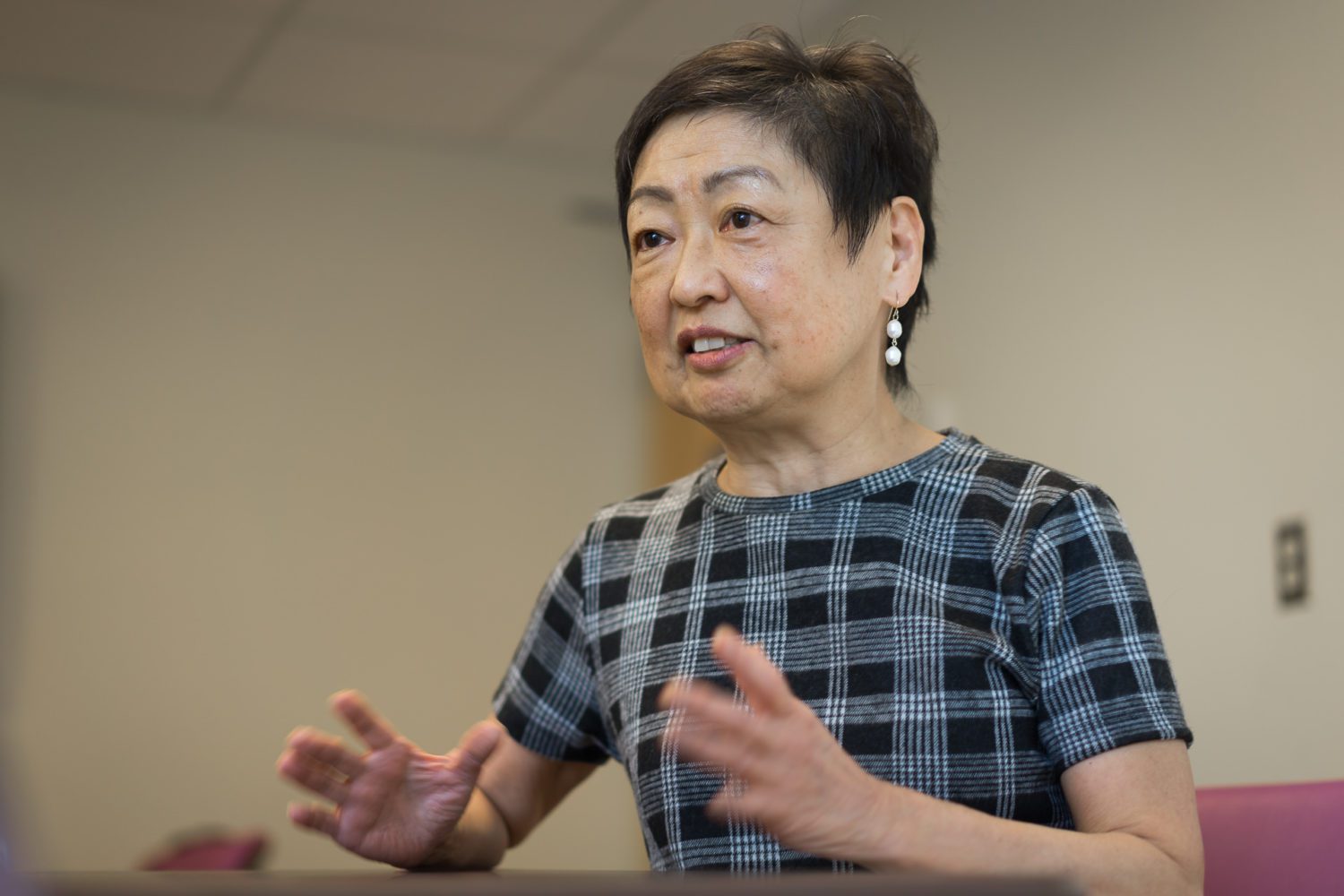
How has your work impacted your own spirituality?
One of the reasons I wanted to work with people at the end of life is because I feel connected. All the small talk falls away and people are willing to be vulnerable and connect on a heart-to-heart level.
I once walked into a room and saw a man who had grey and dishevelled hair. He was a palliative patient in his 60s and had no family. He asked me to pray and I offered a prayer to him. He thanked me for coming and held my hand. He just kept stroking it, like it was the first time he had ever held a hand. I wondered when he last had a physical non-task oriented touch.
I went back to see him again and he said, “I have been waiting for you. I want to hold your hand.” When it was time for me to leave he did not want to let go of my hand. I asked him to find the feeling he experienced when he held my hand. And then I told him that he could take that feeling with him wherever he goes. “It is not my hand, but the feeling you have inside,” I said. He smiled and let go of my hand. I think it is how you connect with something inside yourself that helps sustain you. And sometimes it takes someone external to help people connect with themselves.
When I have opportunities like meeting this man, I am reminded why I do the work I do. It is about being able to connect with someone at a different level. I think all humans want that—that feeling you have when you are in love or when you see a beautiful sunset. That is what my work does for my spirituality. It reminds me that we are all uniquely the same in what we want and what we need.
I asked if the priest could go into the operating room. The surgeon said, “Scrub him up and bring him in!”
How do you disengage your own religious and spiritual beliefs from those of your patients?
Buddhism is a faith tradition that I resonate with. At its core, Buddhism is atheistic. One of the biggest challenges I had when I was training was thinking about how I could, with integrity, pray with a patient. Initially I struggled. But then I looked deeper into the core teaching of Buddhism around helping people and suffering. Over time, I came to a place of peace that praying with people is a way of being with them to alleviate their suffering.
I would get called to the emergency department when there were catastrophic events and I would be asked to pray. Fortunately, I had many peers—a Salvationist, a Presbyterian, an Anglican, a Muslim imam—who I could ask for help. I started by asking them how they prayed. Eventually I realized that I need to pray based on what people say to me because that is most meaningful to them.
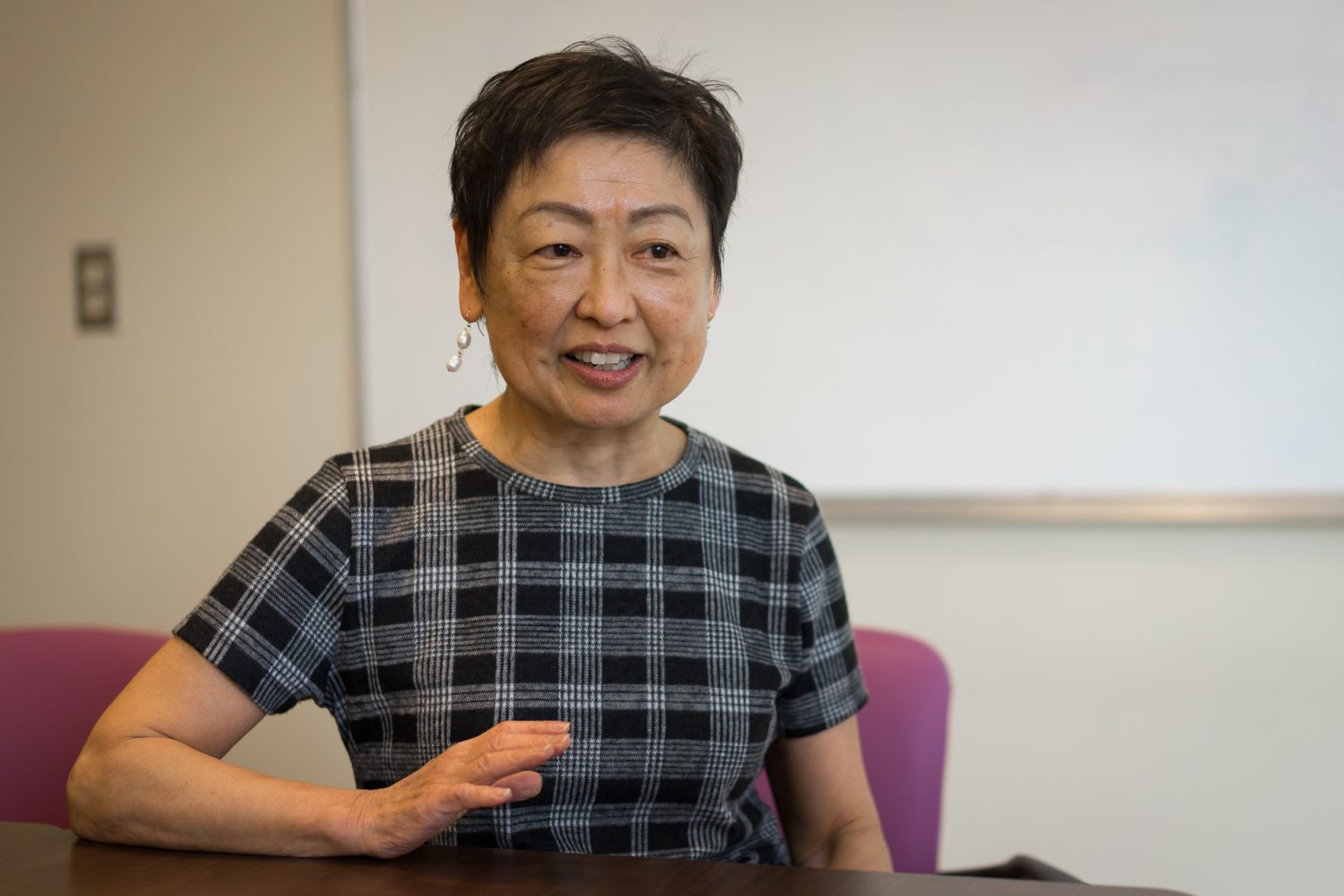
Do you ever take stories you hear at work home with you?
I take it home probably less than I did when I first started. But there is always something that grabs me. I have great friends and peers who I can debrief with. I take a shower every night. I just need to stand in the water and let it run over me. I find water very cleansing, more than just physically, so taking a shower helps me let go.
Working with people in situations that are really trying reminds me how fortunate I am. I can walk. I can work. I can speak. I can eat. I have a choice in where I go, what I do and when I do it. It reminds me to not judge people so much because I see people in a whole bunch of different circumstances. I think as long as I can feel, I will feel connected. If I don’t feel, I cannot feel connected.
I think when I stop feeling, I will need to leave the profession.
What makes a good spiritual care worker?
The ability to reflect and be self-aware. To be there for somebody when a ton of other things may be streaming through my mind. I have to remember that it is about bearing witness to what is happening to that person. I may not understand their timeline, but it may not be important that what they say has a chronological sequence. I just step back and let them share it and hope I can find the thread that connects it all rather than diverting them off their train of thought. This is part of the self-awareness, which is to remember it is about them and not the things I may have on my mind like I have to see six more patients and it’s 2 p.m. Often, while I wash my hands before going into the room, I think about trying to leave whatever is on my mind outside.
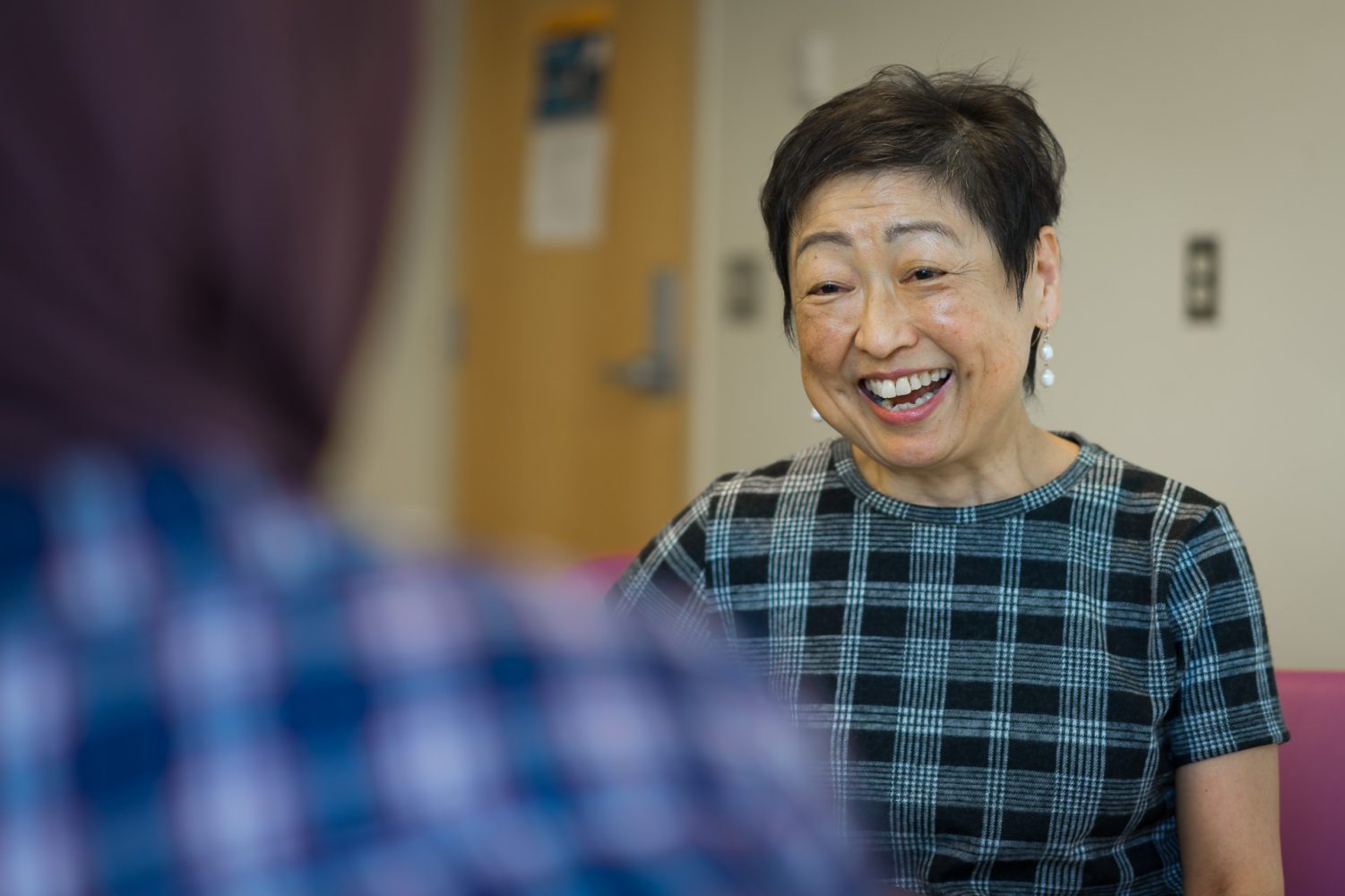
How often does religion come up in your interactions?
When I introduce myself, people often make the assumption that it is about religion. If they want to talk about religion, I am happy to talk about religion. People’s faith can have a big effect on how they make sense of things. I am always interested in finding out how it is helpful and whether it is supporting them at this point in their life.
I often hear from patients that they have a crisis of faith because they feel that their prayers aren’t being answered when they are sick. They can feel that their faith is only valid when things work out the way they want, which is totally understandable. It is so much easier to be faithful when things are going well. So we talk about that. One person told me that God had punished her. I asked, “What is your image of God? What is God like to you?” She said, “God is loving, graceful, and merciful.” I said, “So help me understand how you see a God like that being punishing.” She said, “I have to think about that!”
When I met him he started to cry and said, “I realize that I have so much knowledge about God, but I have no relationship with him.”
Faith is a certain kind of belief, a kind of confidence and trust that happens to be directed in what we call religion. There are a lot of different beliefs that people carry with an equal amount of faith and trust. I met a woman once whose 30-year-old daughter was dying from metastatic breast cancer. She said to me that things happen for a reason and shared a story of her husband passing away in a car accident where two guys had crashed into them and she had survived. I asked her what could possibly be the reason for that tragedy and I will never forget what she said. She said, “I don’t know what the reason was but I believe things happen for a reason.” She had enough confidence in that belief that it sustained her after her husband’s death and she carried it to her daughter.
It also reminds me of a man who was quite old and unable to go back home. He had two Ph.D.s in theology. When I met him he started to cry and said, “I realize that I have so much knowledge about God, but I have no relationship with him.” That touched me a lot. Even though he knew about God, because he didn’t have that relationship, he felt lost and had nothing to hold on to.
It’s so important to me to work with people who are lost because on some spiritual level I was once totally lost too. I didn’t know what I was looking for but I knew that I didn’t have it.
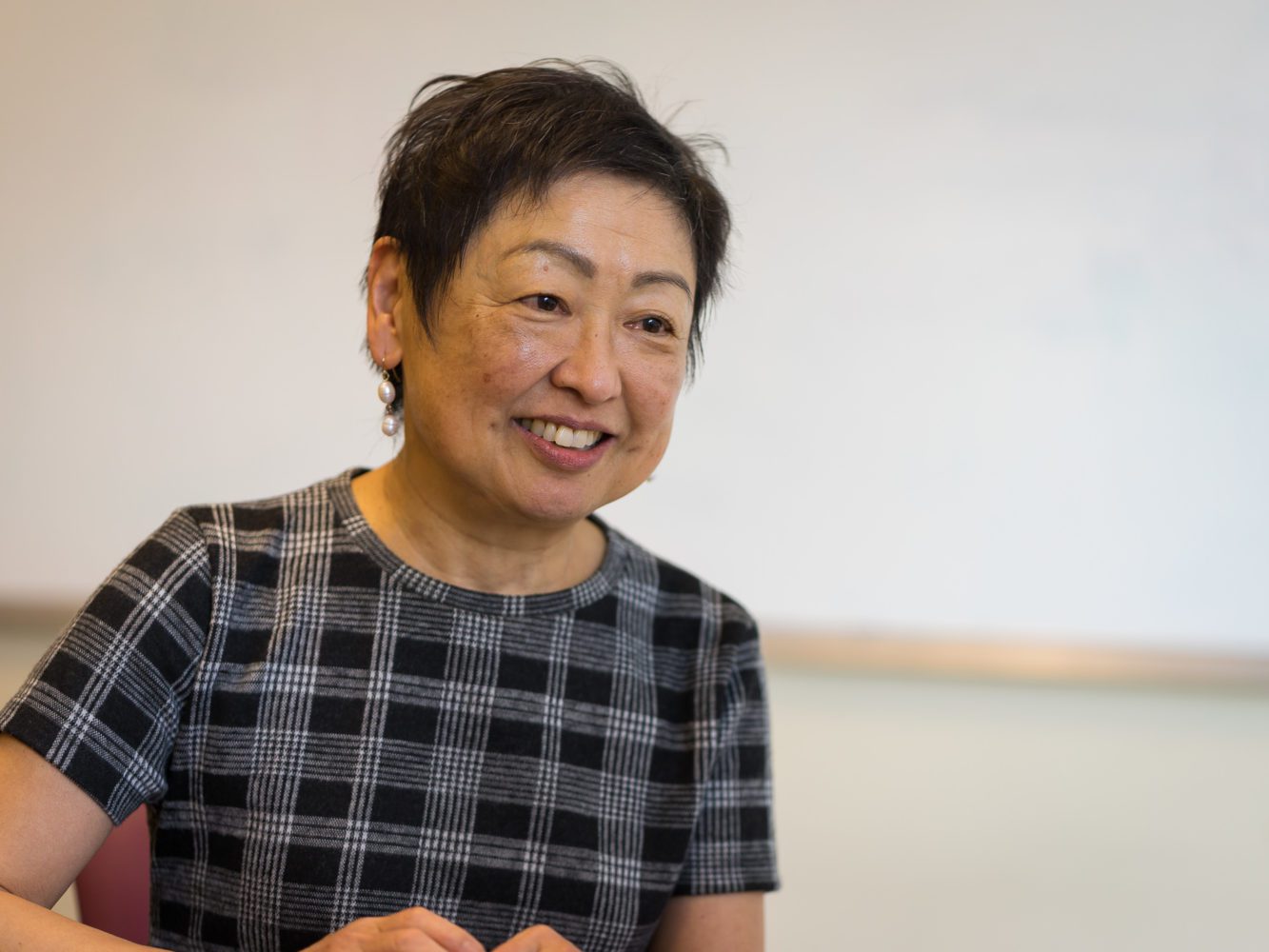


The comments section is closed.